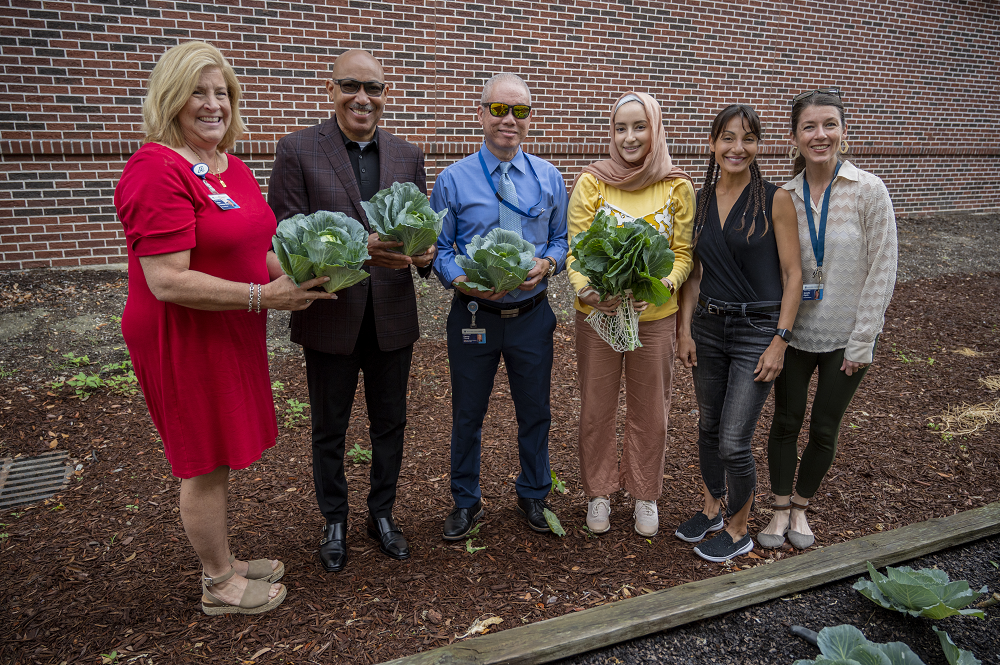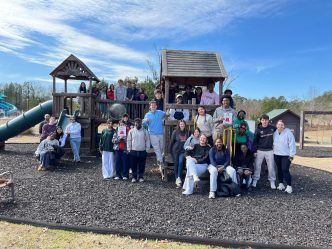Augusta University’s student food pantry, the Open Paws Pantry, has partnered with graduate nutrition students to provide fresh, organic produce to AU students free of charge.
The Master of Science in Allied Health with a Concentration in Nutrition is an accredited MS-dietetic internship (DI) program offered through the College of Allied Health Sciences and The Graduate School. This 21-month program educates students in human nutrition, to include clinical nutrition and dietetics. The program also requires a research-directed capstone project.
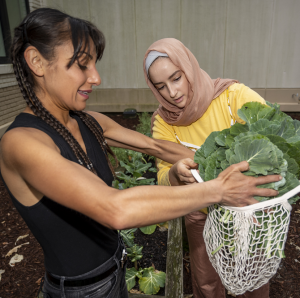
This year, students in the program planted a garden on the Health Sciences Campus near the Ronald McDonald House. The garden currently grows mint, basil, cabbage, broccoli, Swiss chard, collard greens and Brussels sprouts.
Yasmine Boumenir, an MS-DI student, was elected president of the Students of Nutrition in Allied Health Club (SNAHC) in October 2020. She initially started the garden as a way to raise funds for SNAHC’s programs in a safe, socially distant way during the COVID-19 pandemic. The garden was intended to raise funds, create a long-term philanthropic opportunity for future MS-DI cohorts and educate AU students on the importance of nutrition.
The plan was to sell the harvest at low cost to fellow students and the Augusta Locally Grown community to raise funds. “I’m a firm believer that free enterprise can also be altruistic,” said Boumenir.
However, the SNAHC team was able to raise more than enough funds through car washes and bake sales, which allowed them to turn the garden into an exclusively philanthropic project. For Boumenir, this was far more rewarding.
SNAHC first broke ground in November 2020 beside the Jennings Building, where there were a few abandoned garden beds. This was just in time to plant winter crops like cabbage.
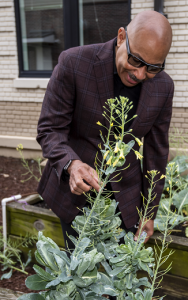
Nicole Moore, a certified advanced practitioner in clinical nutrition and the director of the dietetic internship program, is excited about the project and acknowledges its importance as the community recovers from COVID-19.
“Our students have seen the impact of food insecurity amid the pandemic, with many of them having recently worked with the Burke County School System and the Golden Harvest Food Bank. This heightened their awareness and contributed to the development of the garden,” said Moore.
Gina Thurman, director of Student Advocacy and manager of the Open Paws Food Pantry, is thankful for the opportunity to expand the pantry’s offerings. “I’m so happy that our students now have access to fresh produce. Food pantries can typically only accommodate shelf-stable food, so although we’ll need to make adjustments, I’m glad our students have this option,” she said.
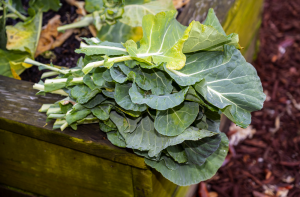 To maximize the impact of the initiative, the SNAHC team is working with Student Advocacy to create recipes and educational handouts about the new produce offerings, as well as guides on how to eat fresh produce and other nutritious foods on a college student’s budget.
To maximize the impact of the initiative, the SNAHC team is working with Student Advocacy to create recipes and educational handouts about the new produce offerings, as well as guides on how to eat fresh produce and other nutritious foods on a college student’s budget.
“A healthy mind begins with a healthy body,” said Boumenir. “I hope future cohorts will expand the diversity and volume of the produce offered and engage more community members in this project.”
 Augusta University
Augusta University
